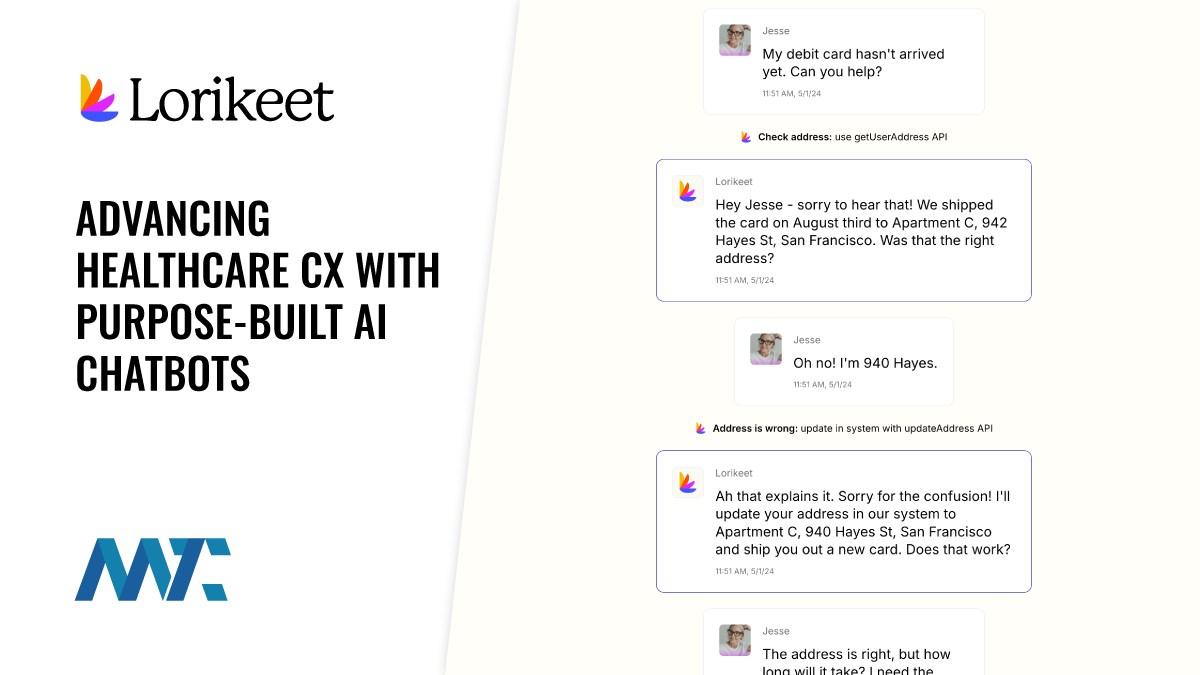The industry’s turn to AI chatbots in support has resulted in many negative customer experiences (CX). Co-pilots are a band-aid, not a solution; they offer marginal gains and have significant downsides. Nowhere is this seen other than in high-stakes fields like healthcare, where patients rely on timely, accurate responses, co-pilots’ frequent errors, and limited efficiency gains, which can compromise service quality. Instead of investing in half-measures, healthcare providers should focus on building robust, autonomous agents designed to handle specific, critical tasks—delivering accurate, scalable improvements without the false confidence of a co-pilot safety net.
On the surface, it makes sense for healthcare providers (HCP) to explore using AI co-pilots to help handle the surging volume of inquiries. But these co-pilot solutions aren’t the answer – in fact, they may do more harm than good.
The Limitations of Co-Pilots
Eucalyptus is a leading digital healthcare provider that serves hundreds of thousands of patients across multiple countries. The support team has struggled to keep up as their patient base has grown.
We’re delivering faster, more efficient support like never before, with no compromise to experience. But our median first response time was over 20 hours as agents got overwhelmed triaging a growing backlog of inquiries.
Dr. Omar Alvi, Eucalyptus Australia’s Managing Director
The natural solution many healthcare providers reach for is an AI co-pilot system that can analyze each patient inquiry, draft a response, and present it to a human agent to review and send.
On the surface, this seems like a logical approach. The co-pilot handles the initial processing, while a human provides a final quality check before the response goes out. What could go wrong?
The problem is that a capable co-pilot is essentially indistinguishable from a fully autonomous agent. It has to understand patient intent, map that to reference materials, and generate a comprehensive response. Oversight by a human agent provides little additional value.
When solving support tickets, the requirements of a capable co-pilot are the same as a system that works autonomously. The only potential benefit is that human review might reduce errors. But the efficiency gains are marginal at best.”
Steve Hind, CEO of Lorikeet
Hind points to research by MIT’s Erik Brynjolfsson, which shows that co-pilot systems in customer support improve productivity by just 14% on average. For a business growing 70% annually, that only offsets one-quarter of headcount growth. And it doesn’t address the real challenge of scaling – handling unexpected surges in volume.”
In fact, Hind argues that a poor co-pilot system may be worse than no AI at all:
If the co-pilot is frequently wrong, agents will spend more time fixing its errors than simply drafting responses themselves. And the human ‘quality check’ creates a false sense of confidence, blunting the incentive for vendors to improve the AI’s underlying accuracy.
Steve Hind, CEO of Lorikeet
The Path Forward: Autonomous Agents
Rather than view co-pilots as a stepping stone to full autonomy, Hind believes healthcare providers should invest in high-quality, purpose-built AI agents. Unlike co-pilots, these agents are not designed to handle every ticket – instead, they are trained on specific use cases and workflows.
Lorikeet’s AI agent doesn’t aim to draft responses for all tickets. It’s designed to be trained on dealing with certain issues, and to leave everything else to human agents. This allows our customers like Eucalyptus to build confidence incrementally, while driving step-change improvements in efficiency.
Steve Hind, CEO of Lorikeet
Eucalyptus has seen powerful results from this approach.
Lorikeet’s triaging capabilities mean urgent medical questions are escalated to clinicians and dealt with quickly. This gives us the confidence to scale our healthcare offering safely.
Estelle Berton, Eucalyptus Operations Lead
After implementing Lorikeet’s skills-based triage, Eucalyptus saw a 10-point increase in their CSAT score.
The uplift was driven by getting the most complex cases to the best agents, which was impossible to do effectively without Lorikeet’s powerful logic. Berton explains.
Estelle Berton, Eucalyptus Operations Lead
The Future of Patient Support
The pandemic accelerated the shift to digital healthcare, as patients increasingly turn to online channels for care and support. However, as patient volumes grow, traditional support models quickly become unsustainable.
Innovative providers like Eucalyptus are in charge of transforming the patient experience through purpose-built AI agents. By intelligently triaging inquiries, empowering agents with contextual insights, and delivering personalized, conversational support, they can scale capacity without compromising quality.
We measure CSAT closely and Lorikeet’s AI agent consistently scores as high or higher than our human agents. The uplift in satisfaction is just the icing on the cake.
Estelle Berton, Eucalyptus Operations Lead
As the healthcare industry evolves, AI-powered support will be essential for delivering the seamless, empathetic experiences that patients demand. Companies that embrace this transformation, rather than relying on co-pilots, will be well-positioned to thrive in the digital-first future of healthcare.
To learn more about Lorikeet’s AI agent platform:
Schedule a Lorikeet Demo



